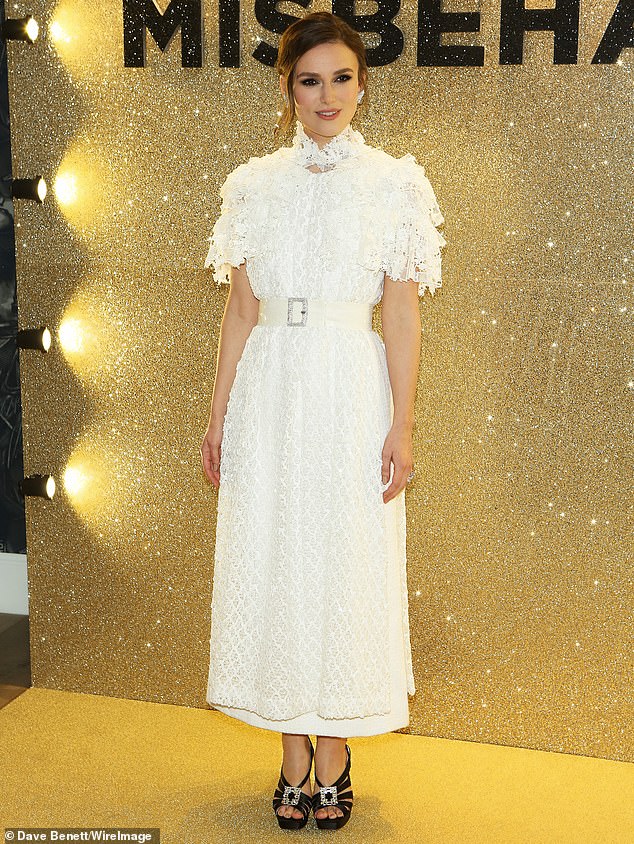Dyslexia can be a BLESSING and teachers should stop treating it as a disability, says charity in Keira Knightley-backed campaign
- Made By Dyslexia aims to train teachers to understand ‘dyslexia strengths’
- Charity argues that children with dyslexia have naturally business-savvy skills
- Some 250,000 teachers have already been trained by charity to spot dyslexia
Teachers should stop treating dyslexia as a disability and promote the benefits of it to students, a charity has said.
Made By Dyslexia has started a campaign backed by Keira Knightley, Sir Richard Branson and space scientist Maggie Aderin-Pocock – all of whom are dyslexic.
Within the next five years the charity aims to have trained every teacher in the world to be able to understand ‘dyslexia strengths’ in children that are currently being ignored by schools.
The charity argues that children with dyslexia are naturally business-savvy with skills such as creativity, curiosity and lateral thinking.
Made By Dyslexia has started a campaign backed by Keira Knightley, Sir Richard Branson and space scientist Maggie Aderin-Pocock – all of whom are dyslexic
Some 250,000 teachers have already been trained by the charity to spot dyslexia and it has created an online teacher training programme with Millfield School in Somerset.

Sir Richard Branson said: ‘As a dyslexic, I know that everyone living with dyslexia can also thrive with it. In fact, it has been such a positive force in my life’
Chief executive of Made By Dyslexia, Kate Griggs, told The Times: ‘In an era of automation, where facts can be Googled, spelling, punctuation and grammar can be corrected at the touch of a button, it is creativity, imagination and intuition that sets us apart from the machines.
‘And these skills come naturally to dyslexics.’
Sir Richard Branson said: ‘As a dyslexic, I know that everyone living with dyslexia can also thrive with it. In fact, it has been such a positive force in my life.
‘After dropping out of school at an early age, my dyslexia has helped me think creatively to solve problems and keep things simple.’
It has been suggested that Albert Einstein had dyslexia after a dyslexic physicist read over his works and recognised dyslexic traits.
His verbal development was delayed and Einstein did not speak until the age of three and he struggled with speech until the age of seven.
When he was a schoolboy he struggled with arithmetic and had great difficulty learning foreign languages.
Research published in 2011 by Harvard University found that many highly-skilled scientists had dyslexia, including Nobel prizewinners.
